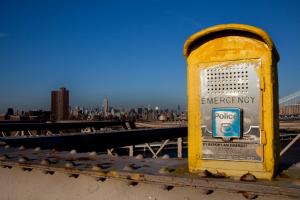Emergency Funds: The 411 About Your 911 Account
All of us pay taxes to make sure we have emergency services to help us in case of a fire or other problem. Emergency insurance, however, should not stop here. We also need to think about keeping our financial world safe by establishing an emergency fund, which can act like insurance for a job loss, accident, natural disaster or any other emergency.
How Much is Enough?
Financial professionals have encouraged a six month emergency fund for years, but recently, during our financial crises when often both bread winners could be out of a job, financial planners have begun to encourage a one year emergency fund. In other words, ideally you should have enough money in the bank to cover one year of your family's expenses in an easy-access fund. This will ensure that the family could get by during job searches without changing any financial details for a full year.
What if I am Not Even Close?
If you are like most of us, your emergency funds do not even come close to the new suggested amount. We know the feeling, but you should start squirreling money to your emergency fund right away.
In this case, it is now suggested that extra money go toward emergency funds before investments and even before paying extra on your debts and other liabilities. Yes, you may have an 18% interest credit card now (after the credit companies reassessed their credit offerings), but paying extra on your card before establishing your emergency fund will be a detriment to you if you ever lose your job or have an accident that affects your working ability.
Stretching the Funds During Emergencies
The hope in establishing an emergency fund is, of course, that any family member who loses a job could find full-time work within a year. But sometimes that's just not possible -- especially during severe recessions.
To stretch the savings until you get back on track, plan emergency strategies along with your emergency fund. Think about where you'd go to get temporary work and what expenses you could cut back on if necessary. Consider what assets you might be able to sell. Having a game plan for those "just in case" times will go a long way toward keeping your sanity while you get back on track.
Almost no one that I know has an emergency fund that could take care of expenses for a full year, including myself. But I do know that with a lot of hard work, setting up a full emergency fund would offer peace of mind and insurance against any emergencies. Start considering your game plan today, and you'll be far ahead of the curve if disaster strikes!
- Login to post comments
-







MoneyCone wrote:
Wed, 12/08/2010 - 20:56 Comment #: 1Love the title of the post! :)
retirebyforty wrote:
Wed, 12/08/2010 - 21:03 Comment #: 2We have about 3-4 months in our e fund. I'm pretty comfortable with that. I'll sell some investment if I see a big emergency or expense coming up. This worked pretty well for us so far.
Christa Palm wrote:
Thu, 12/09/2010 - 01:52 Comment #: 3Thanks, Moneycone -- I was feeling creative :)
Retirebyforty, awesome job on having a plan! I finally have six months squirrelled away, but I still want to add more -- just a tad more squirrellish behavior will get me there.
Canadian Finance Carnival #14 - Canadian Finance Blog wrote:
Sun, 12/12/2010 - 09:57 Comment #: 4[...] with Aaron Patzer about the Canadian launch of Mint!BudgetingJessica at MomVesting presents Emergency Funds: The 411 About Your 911 Account, saying “Keep your financial world safe by establishing an emergency fund, which can act like [...]